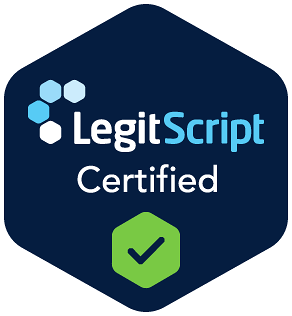The complexity of Substance Use Disorders (SUDs) necessitates a multifaceted approach to treatment that transcends traditional methods. Integrative approaches, which combine evidence-based practices with holistic therapies, have gained traction in recent years for their potential to address the myriad factors influencing addiction. By focusing on the interplay between physical, psychological, and social elements, these strategies promise a more personalized path to recovery. However, the effectiveness of such approaches raises critical questions about their implementation and the varying outcomes they produce, inviting further exploration into their implications for treatment efficacy.
Understanding Substance Use Disorders
Substance use disorders (SUDs) affect approximately 20 million individuals in the United States alone, highlighting the widespread nature of this public health issue. These are complex conditions characterized by the compulsive use of substances despite adverse consequences. Understanding the classification of substances ranging from legal drugs like alcohol and prescription medications to illicit drugs such as opioids and stimulants provides critical insight into the nature of these disorders. Each category has distinct effects on the brain and body, contributing to addiction development.
Moreover, addiction triggers play a pivotal role in SUDs, encompassing a range of psychosocial factors that can exacerbate substance use. These triggers include stress, environmental cues, and mental health conditions, which foster a cycle of craving and relapse. The interplay between substances and triggers necessitates an interdisciplinary approach to treatment, integrating medical, psychological, and social support systems. Recognizing SUDs’ underlying causes and tailoring interventions accordingly lay the groundwork for effective treatment strategies.
Benefits of Integrative Approaches
A thorough understanding of integrative approaches reveals numerous benefits for individuals seeking recovery from substance use disorders. These methods emphasize holistic healing, addressing not only the physical aspects of addiction but also the psychological, emotional, and social factors that contribute to substance use. By considering the whole person, integrative methods foster a more complete understanding of recovery, potentially leading to better outcomes.
Individualized care is central to integrative approaches, tailoring treatment plans to each person’s unique needs, preferences, and circumstances. This personalization enhances engagement in the recovery process, as individuals feel seen and understood. Evidence suggests that when treatment is tailored, individuals are more likely to adhere to their plans and experience sustained recovery. Integrative approaches often incorporate diverse therapeutic modalities, enriching the recovery experience and empowering individuals with a toolkit of strategies.
Key Therapeutic Modalities
Effective treatment for substance use disorders relies on key therapeutic modalities addressing addiction’s multifaceted nature. Cognitive behavioral therapy (CBT) has emerged as a cornerstone of treatment, helping individuals recognize and change maladaptive thought patterns and behaviors contributing to substance use, empowering healthier coping strategies. Research shows CBT can notably reduce substance use and improve psychological well-being. Holistic healing approaches also play an essential role in extensive treatment.
These methods consider the whole person mind, body, and spirit fostering overall wellness. Techniques such as mindfulness, yoga, and nutritional counseling can enhance traditional therapies, helping individuals manage stress and emotional pain without resorting to substances. Integrating CBT and holistic healing reflects an understanding of addiction as a complex interplay of biological, psychological, and social factors. Employing these diverse modalities provides a personalized and effective recovery experience.
Support Systems and Resources
Support systems play an essential role in recovery for individuals facing substance use disorders. These systems encompass formal and informal support networks, enhancing treatment effectiveness. Research indicates individuals with robust support networks are more likely to maintain sobriety and experience positive health outcomes. Community resources support groups, counseling services, and educational programs are instrumental in empowering individuals to navigate recovery.
Organizations like Alcoholics Anonymous (AA) or Narcotics Anonymous (NA) offer peer support fostering accountability and shared experiences. Mental health professionals can collaborate with community organizations to create comprehensive treatment plans addressing substance use disorders’ multifaceted nature. Incorporating integrated care models strengthens the individual’s support network. Empathetic communication and understanding from loved ones can alleviate isolation, improving motivation and resilience.

Final Thoughts
Integrative approaches to treating substance use disorders represent a thorough strategy that addresses the multifaceted nature of addiction. By combining evidence-based therapies with holistic practices, these methods promote not only the cessation of substance use but also the enhancement of overall well-being. The focus on individual needs fosters a supportive environment conducive to recovery. Continued research and collaboration among disciplines will further refine these approaches, ultimately improving outcomes for individuals seeking lasting recovery from substance use disorders.
If you or someone you care about is grappling with substance abuse, remember that support is within reach. At Bluecrest, we provide an intensive outpatient program customized to suit individual needs, fostering recovery and optimism. Our team of devoted professionals is dedicated to offering the guidance, support, and tools needed to navigate the path to sobriety.
Frequently Asked Questions
What Are the Signs That I Need Help for Substance Use?
Recognizing warning signs of substance use is vital for seeking support. These signs may include increased tolerance, withdrawal symptoms, neglecting responsibilities, or risky behaviors. If substance use interferes with personal relationships or daily activities, it may indicate a need for professional assistance. Acknowledging these symptoms is an essential first step towards recovery, allowing individuals to access necessary resources and support systems for effective treatment.
How Long Does an Integrative Treatment Program Typically Last?
The duration of an integrative treatment program typically ranges from 30 days to several months, depending on individual needs and program components. Factors influencing length include the severity of substance use, personal circumstances, and therapeutic modalities employed. Engaging with healthcare professionals tailors the program to your unique situation, ensuring a thorough recovery approach addressing physical and psychological substance use aspects.
Will My Insurance Cover Integrative Substance Use Disorder Treatments?
Insurance coverage for substance use disorder treatments varies greatly based on individual insurance policies and specific treatment options. Many plans offer partial or full coverage for various treatment modalities, including inpatient and outpatient programs. It is essential to review your policy details and consult with your insurance provider to understand your coverage extent. Engaging with a treatment facility can also provide guidance on insurance compatibility and financial planning.
Can I Continue Working While Attending a Treatment Program?
Balancing work commitments while attending a treatment program is a valid concern. Many programs offer treatment flexibility, allowing individuals to schedule sessions around work hours. This approach facilitates a healthier work-life balance, enabling participants to maintain professional responsibilities while focusing on recovery. It is essential to communicate with your employer about needs, as supportive workplaces often accommodate such arrangements, fostering a conducive work and healing environment.
What Should I Expect During My First Therapy Session?
During your first therapy session, expect an initial assessment where the therapist gathers information about your history, challenges, and goals. This is essential for developing a personalized treatment plan. The therapist will likely discuss expectations regarding confidentiality, participation, and commitment to the process. Approach this session with openness and honesty, as it sets the foundation for your therapeutic journey, fostering a trusting relationship.




